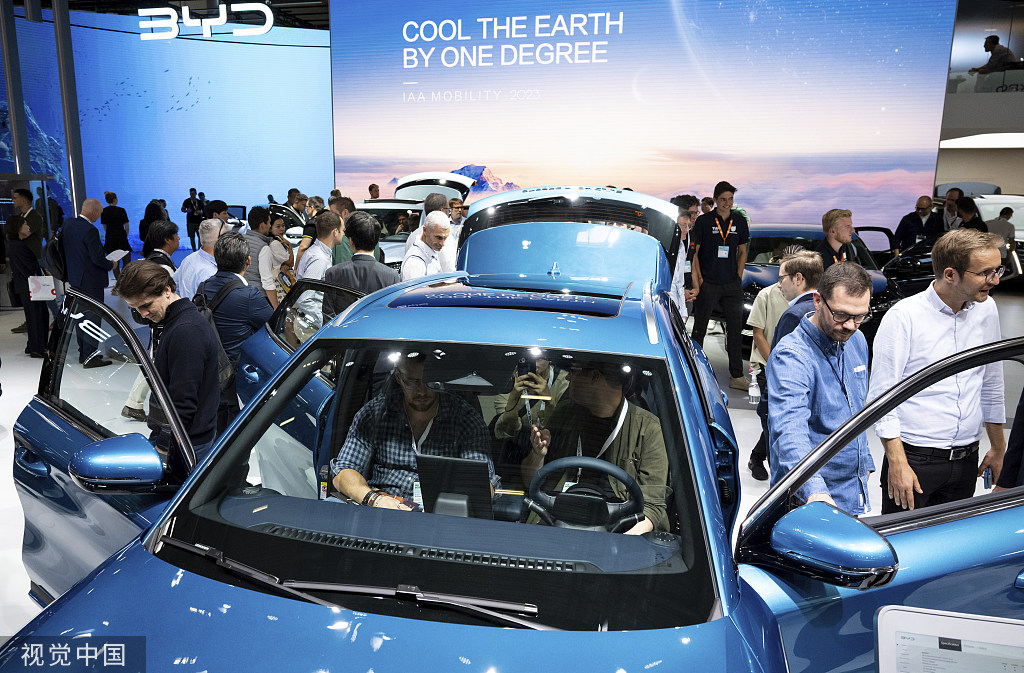The number of Chinese exhibitors, including those producing electric vehicles, taking part in the IAA Mobility 2023 auto show, which opened in Munich on Sept 5 and concluded on Sunday, was second to that of host Germany.
Chinese EVs have gained an advantage in the global industry chains due to the quality of EV batteries manufactured by enterprises such as BYD and CATL. The great strides the Chinese EV sector has made can be gauged from a CNN report, which quoted the chief executive of French carmaker Renault, Lu de Meo, as telling France’s RTL Radio “I think they (the Chinese) are a generation ahead of us”.
Data show BYD cars have replaced Volkswagen cars as vehicles of choice in the Chinese market, and BYD has been selling 20 times more EVs than Volkswagen. In fact, in the top 10 list of best-selling EVs in China, none is made by a European country.
China’s automobile exports increased by 86 percent year-on-year over the first seven months of this year to more than 4 million units, with the majority of those being EVs. Chinese cars now account for 2.8 percent of the European market compared with 0.1 percent in 2019, while Chinese EVs account for 3.9 percent compared with 0.5 percent in 2019.
There are several reasons behind Chinese EVs’ rise. First, China has the advantage of having a complete industry chain, as data show 75 percent of the parts and gears of BYD’s 2022 Seal model were made by the company, while it imported only 10 percent of them from foreign countries. And therein lies BYD’s advantage.
Second, Chinese cars are 30 percent cheaper than their European and US counterparts on average, according to Jato Dynamics data.
And third, China is a global leader in battery technology, digitalization and automation in manufacturing, while European brands have to rely on China and other East Asian countries for batteries and other EV parts.
Despite the fierce competition, Chinese automakers, especially the EV manufacturers, have the capability to grab a bigger share of the global market.
Credit: Source link




